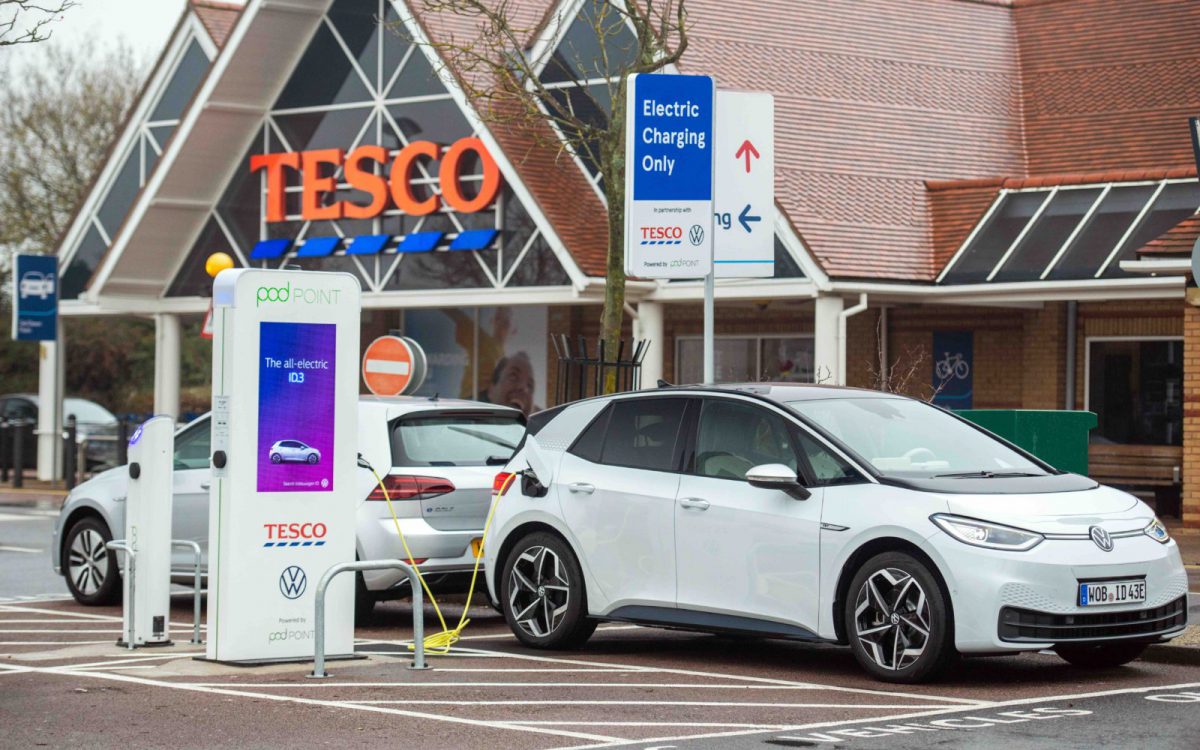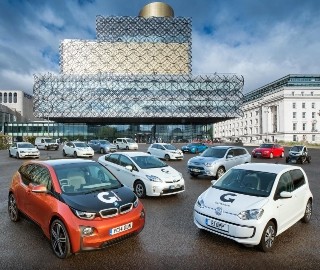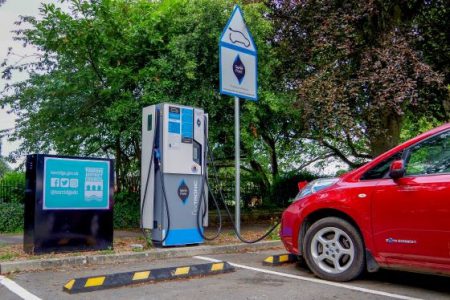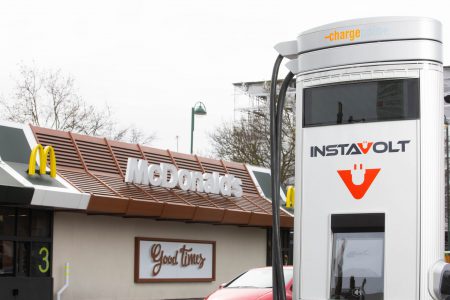Electric vehicle (EV) charging company Pod Point has reached a new milestone in its rollout of chargers at Tesco stores.
Chargers have now been installed at 200 Tesco stores, with the latest – four 7kW charging bays – going in at the Chester Tesco Superstore. This takes the number of chargers installed as part of the rollout to 402, with at least two charging points installed at each location.

The partnership is on track to install chargers at a further 200 stores by the end of the year, Pod Point said, with 12% of the total Tesco store footprint now having EV charging facilities.
This is set to rise to 36% following the rollout, which is being done as a partnership between Pod Point, Tesco and Volkswagen and was first announced in 2018.
It is aiming to install 2,400 charging points across 600 UK stores, with chargers first installed in 2019.
Since then, over 669MWh has been used to power customers’ vehicles, with the chargers – which are free to use – powered exclusively through renewables.
Read more: Current News
It’s Time to Go Green!
If you would like to know more about Solar Panels and the PowerBanx range of home battery systems, and get a free instant quote, please complete our online form:

















